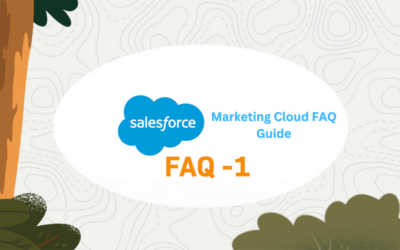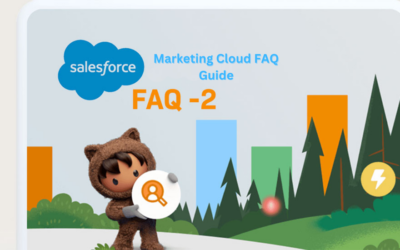In today’s fast-paced business environment, customer relationship management (CRM) is a crucial aspect of success. However, with the advancements in artificial intelligence (AI), the CRM landscape is undergoing a significant transformation. AI-powered technologies are revolutionizing the way CEOs and marketers manage customer relationships, drive sales, and deliver personalized experiences. In this article, we will explore the implications of AI in CRM and discuss how CEOs and marketers can leverage this technology for business growth.
1. Enhanced Customer Insights and Predictive Analytics
AI brings advanced capabilities to CRM systems, enabling organizations to gain deeper customer insights and leverage predictive analytics. By analyzing vast amounts of customer data, AI algorithms can uncover valuable patterns and trends that go beyond traditional CRM analytics. This empowers businesses to understand customer preferences, predict buying behaviors, and make data-driven decisions to optimize marketing strategies and sales efforts.
2. Personalized Customer Experiences at Scale
AI enables marketing teams to deliver highly personalized customer experiences at scale. By leveraging AI-powered chatbots and virtual assistants, businesses can provide instant and personalized support to customers, enhancing engagement and satisfaction. AI algorithms can also analyze customer behavior and preferences to deliver tailored marketing messages and product recommendations, driving higher conversion rates and customer loyalty.
3. Intelligent Lead Scoring and Qualification
With AI, marketers can optimize lead scoring and qualification processes. AI algorithms can analyze historical data, website interactions, and social media engagement to prioritize leads based on their likelihood to convert. This allows sales teams to focus their efforts on high-quality leads, improving sales productivity and efficiency. Additionally, AI-powered lead nurturing campaigns can automate personalized interactions, keeping leads engaged throughout the buyer’s journey.
4. Efficient Sales Process and Revenue Forecasting
AI-powered CRM systems offer valuable insights into the sales process, helping CEOs optimize their strategies. AI algorithms can analyze historical sales data, customer interactions, and market trends to identify patterns and factors that contribute to successful deals. This enables businesses to forecast sales more accurately, identify bottlenecks in the sales pipeline, and implement strategies to improve conversion rates and revenue.
5. Automation of Tasks and Workflows
AI streamlines CRM processes by automating routine tasks and workflows. Sales and Marketing leaders can leverage AI-powered automation to handle data entry, lead enrichment, and contact management, saving time and reducing manual errors. This allows teams to focus on more strategic initiatives and high-value interactions with customers, resulting in improved efficiency and productivity.
6. Data Security and Privacy
As AI plays a more significant role in CRM, data security and privacy become critical concerns for CEOs and CTOs. It is essential to ensure that AI-powered CRM systems comply with data protection regulations and maintain the highest standards of security. By implementing robust data governance practices and leveraging AI technologies that prioritize privacy, businesses can build trust with customers and safeguard sensitive information.
AI is transforming the CRM landscape, offering CEOs and CMOs with unprecedented opportunities to drive business growth and deliver exceptional customer experiences. By harnessing the power of AI, businesses can gain deeper customer insights, personalize interactions, automate processes, and optimize sales efforts. However, it is crucial for business leaders to approach AI implementation with careful consideration of data security and privacy concerns. Embracing AI-powered CRM technologies will undoubtedly position businesses at the forefront of the competitive landscape, enabling them to stay ahead of customer expectations and drive long-term success.
While AI continues to shape the CRM landscape, it’s essential for leaders to keep abreast of the latest developments, collaborate with AI experts, and adapt their strategies accordingly. By embracing the transformative potential of AI in CRM, businesses can gain a competitive edge, foster meaningful customer relationships, and achieve sustainable growth in the digital era.





